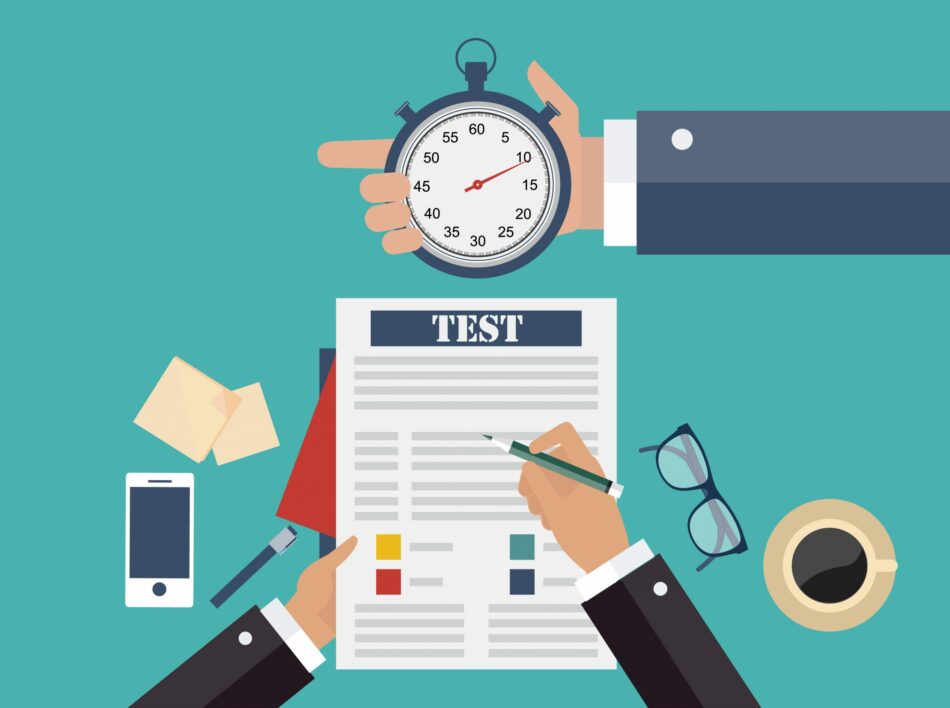Why reliability in a psychometric test matters and how to improve it
As psychometric tests have become a major tool to test an individual, one might also ponder upon the reliability of the test. One might think how consistent the measuring capability of the test is. Or, does the test function properly and measure what it has to measure?

Like when a test is arranged to measure intelligence, then is it measuring that or focusing on something else? That is what the concern should be about.
One should also go for psychometric assessment only if they think that taking this test and measuring on this basis can be reliable enough.
Different types of Psychometric Test reliability
Parallel Forms Reliability
This is something when 2 tests that are actually different are used on the basis of same content but they have separate equipment and procedures. That is why; the results that come out are the same of every individual who takes the test.
Internal Consistency Reliability
Here, the items present in the test are also examined so that the examiner can see whether the test appears to measure what is has to measure. The internal reliability method is thus also termed as the internal consistency.
Inter rater Reliability
Here, 2 different raters score this psychometric test in a same manner and so the inter scorer consistency is very high.
Test- Retest Reliability
As the name suggests, the same test is taken over a period of time and then the test taker gets a consistency note in the scores over several administrations of the same test.
Then there can always be better situations for understanding psychometric tests .
There are also several factors that can influence the reliability of the psychometric tests. In fact, one can also find out certain yet minor discrepancies in psychometric test reliability. Also, different individuals taking the same psychometric test can also have a different set of thoughts, ideas and feelings and this can lead to some variation of acquired scores at different point of times.
Then what are the stable traits of a psychometric test? According to many studies, the stable traits mainly include height, weight and other major characteristics. Those minor inconsistencies can happen due to the health of the test taker or his/ her understanding of a particular test item at different time and situations.
So, why one should be so concerned about the reliability of the psychometric tests? Well, according to studies, it is very essential for a psychometric test because if the same test keeps resulting into different scores and results from time to time then there is no point in conducting it. This can also affect if it is used in case of an employee selection procedure where obtained scores of an individual test taker are held to be very crucial.
Errors in Reliability
Are there any errors when it comes to psychometric reliability? Yes, there are. In fact, this test can actually identify 2 major categories of errors. They are:
Systematic errors
These are the major factors which pertain to the test construction and they are always inbuilt in the test.
Unsystematic errors
They are the errors which result from the factors depending on how the test is taken or given.
There are numerous factors that can influence the reliability of a test. In fact, the timing in between the 2 test sessions can also affect the test and its parallel forms of reliability. The similarity of the expectations and the content of the subjects regarding the various elements of testing can always affect the reliability meter of the test along with the internal consistency.
When one is assessing the reliability of a psychometric test, then the changes on subjects like physical state, environment, mental and emotional well-being from time to time needs to be considered. There are also some test based factors like biased score lacking in objectivity, inadequate testing instructions and other things are also to be taken in account because it can also influence the reliability of the test.
Construction of Items or Questions of the test
There are certain test makers or designers who design this particular test. They always construct questions of the psychometric test in order to assess the mental quality of an individual. There are some difficulty levels created in the test and some confusions are also created by some ambiguity. But this can always influence the reliability of the test in a negative way. Errors in some question construction can be corrected easily if the test instructions are implemented properly and then the test has to be redesigned. Actually this is an ongoing process.
Administration
The administration of the test is another thing where some systematic errors can take place. If there are errors in instructions then the test taker can have some major issues with the reliability of the test. In fact, it can also lower the reliability meter of the test.
Scoring
Reliability of a test also means that is should have a proper scoring system. The test should also have certain instructions that are related to scoring. So, the test construction can only be done after a thorough and an elaborate research. One should also have a sharp eye on the systematic errors during the design phase as it can also affect the reliability of the test.
Environmental Factors
If there are some distractions in the audio visual segment of the test then it can influence the test scores as well. This can also make a huge impact on the reliability of the scores that is obtained in the test. Sometimes human errors are also possible and scoring or interpretations can also be influenced depending on the examiner’s attitude towards the test takers.
One can easily overcome the issues by increasing the test length which is actually a great way to improve the reliability of the test. It is said, that the longer the test, the better is its reliability rate. So, one can do that and also increase the speed of the test for some better reliability factor.


